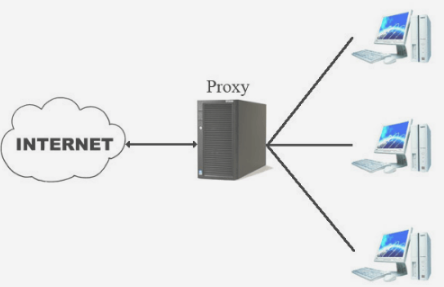In the realm of network architecture, various mechanisms aid users in achieving anonymity, privacy, and enhanced security levels. One such mechanism is a proxy server, known for its intermediary role in handling requests between a client and an external server. When discussing these servers, a common misconception arises about their protocols, with many assuming that proxies operate exclusively on HTTP. This narrative demands clarification.
A "proxy server," in essence, is an intermediary server that separates end users from the websites they browse. It's instrumental in providing varying levels of privacy, security, and operational function based on the users' needs. The versatility of proxy servers isn't confined to a single protocol but instead spans several, each tailored to specific tasks or levels of security.
The HTTP proxy, perhaps the most well-known type, specifically deals with web traffic. It functions by establishing a barrier between the browser and the internet, handling requests and responses in the client's stead. This process allows for numerous advantages, such as content caching, accessing blocked resources, and maintaining anonymity while browsing.
However, proxy servers are not exclusively tied to HTTP protocols. Other types exist, such as HTTPS proxies, which perform similar functions to their HTTP counterparts but with an added layer of security with SSL or TLS encryption. This security measure is paramount for sensitive transactions, such as those involving personal data or financial information.

Beyond these, SOCKS proxies represent another category, offering more extensive forms of proxy service. Unlike HTTP proxies, which are designed for HTTP traffic, SOCKS proxies accommodate a broader range of traffic types. Whether it's FTP for file transfers, SMTP for email, or HTTP for web browsing, a SOCKS proxy's versatility extends to various protocols, offering a more generalized form of protection.
Furthermore, there are transparent proxies, often unseen by users, deployed by organizations or ISPs for content filtering, data flow regulation, and performance enhancements. These proxies might operate on different internet layers, indicating they're not restricted to the HTTP protocol either.
Each proxy type serves distinct purposes and offers different levels of security and anonymity. Hence, individuals or organizations considering employing a proxy server must ascertain their requirements and choose a proxy type that aligns with their needs.
For users interested in exploring the variety of options and diving deeper into specific proxy offerings, certain resources provide comprehensive insights and a list of available services. Notably, one can access a detailed proxy server guide via this link, enhancing their understanding and facilitating an informed decision.
Understanding the broader landscape of proxy servers underscores the importance of recognizing that these intermediary systems extend beyond HTTP. They encompass a diverse array of protocols and types, each engineered to meet unique technological and digital security demands in today's increasingly interconnected world.
